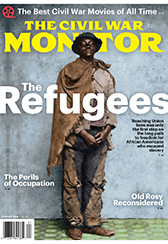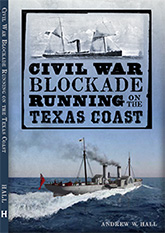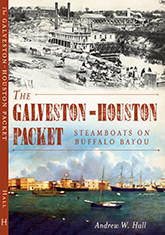John B. Gordon, “Faithful Servants,” and Veterans’ Reunions
Recently I came across a passage in General John B. Gordon’s Reminiscences of the Civil War (1903, pp. 382-84) that, while discussing the eleventh-hour decision of the Confederate government to enlist slaves as soldiers in the final weeks of the conflict, reveals a great deal about the nature of slaves’ other service in the Confederate army, and how they themselves sometimes presented themselves both during the war and decades later.
 John Brown Gordon (1832-1904) was an attorney with no military experience when the war began, but he was elected captain of a company he raised, and by late 1862 had been promoted to the rank of brigadier general. He quickly became famous for his bravery under fire, and was wounded numerous times. He served throughout the war with the Army of Northern Virginia, eventually rising to the rank of major general (he claimed lieutenant general), and commanding the Second Corps of that army. Gordon saw action at most of the Army of Northern Virginia’s major engagements, including First Manassas, Malvern Hill, Sharpsburg, Gettysburg, the Wilderness, Spotsylvania Court House and the Siege of Petersburg. Gordon surrendered his command to another famous civilian-turned-general, Joshua Lawrence Chamberlain, in April 1865. After the war, he fought against Reconstruction policies — allegedly as a leader of the Klan — and later served as a U.S. senator and as governor of Georgia. In 1890 he was elected first Commander-in-Chief of the United Confederate Veterans, a post he held until his death.
John Brown Gordon (1832-1904) was an attorney with no military experience when the war began, but he was elected captain of a company he raised, and by late 1862 had been promoted to the rank of brigadier general. He quickly became famous for his bravery under fire, and was wounded numerous times. He served throughout the war with the Army of Northern Virginia, eventually rising to the rank of major general (he claimed lieutenant general), and commanding the Second Corps of that army. Gordon saw action at most of the Army of Northern Virginia’s major engagements, including First Manassas, Malvern Hill, Sharpsburg, Gettysburg, the Wilderness, Spotsylvania Court House and the Siege of Petersburg. Gordon surrendered his command to another famous civilian-turned-general, Joshua Lawrence Chamberlain, in April 1865. After the war, he fought against Reconstruction policies — allegedly as a leader of the Klan — and later served as a U.S. senator and as governor of Georgia. In 1890 he was elected first Commander-in-Chief of the United Confederate Veterans, a post he held until his death.
In his memoir, Gordon describes the debate surrounding the proposed enlistment of slaves in the Confederate army in the closing weeks of the war:
Again, it was argued in favor of the proposition that the loyalty and proven devotion of the Southern negroes [sic.] to their owners would make them serviceable and reliable as fighters, while their inherited habits of obedience would make it easy to drill and discipline them. The fidelity of the race during the past years of the war, their refusal to strike for their freedom in any organized movement that would involve the peace and safety of the communities where they largely outnumbered the whites, and the innumerable instances of individual devotion to masters and their families, which have never been equaled in any servile race, were all considered as arguments for the enlistment of slaves as Confederate soldiers. Indeed, many of them who were with the army as body-servants repeatedly risked their lives in following their young masters and bringing them off the battlefield when wounded or dead. These faithful servants at that time boasted of being Confederates, and many of them meet now with the veterans in their reunions, and, pointing to their Confederate badges, relate with great satisfaction and pride their experiences and services during the war. One of them, who attends nearly all the reunions, can, after a lapse of nearly forty years, repeat from memory the roll call of the company to which his master belonged.
My emphasis. Like another dyed-in-the-wool, senior and well-connected Confederate general, Howell Cobb, Gordon discusses the proposal to enroll slaves as soldiers without making any mention of the supposedly-widespread practice of African Americans serving in exactly that capacity.
Far more important, though, is what he does say. Gordon’s description of enslaved body servants, and their ongoing attachment to the Confederacy, is essential. He notes that they “boasted of being Confederates, and many of them meet now with the veterans in their reunions, and, pointing to their Confederate badges, relate with great satisfaction and pride their experiences and services during the war.” This is a critical observation, and explains much of what is now taken as “evidence” of African American men serving as soldiers during the war. Advocates for the notion that large numbers of black men served as soldiers in the Confederate army routinely point to images of elderly African American men at veterans’ reunions and argue that those men wouldn’t have been present had they not been seen as co-equal soldiers themselves. As we’ve seen, the historical record, when available, can disprove that assumption. And now we have General John B. Gordon, Commander-in-Chief of the United Confederate Veterans, writing exactly the same thing about what he saw around him, as the popularity of veterans’ reunions reached its peak. Gordon clearly takes pride in the former slaves’ commitment to the memory of the Confederacy — again, “faithful servants” — but he never credits any greater wartime service to them. Indeed, Gordon continues with an anecdote mocking the idea of such men being considered soldiers:
General Lee used to tell with decided relish of the old negro (a cook of one of his officers) who called to see him at his headquarters. He was shown into the general’s presence, and, pulling off his hat, he said, “General Lee, I been wanting to see you a long time. I ‘m a soldier.”
“Ah? To what army do you belong—to the Union army or to the Southern army ?”
“Oh, general, I belong to your army.”
“Well, have you been shot ?”
“No, sir; I ain’t been shot yet.”
“How is that? Nearly all of our men get shot.”
“Why, general, I ain’t been shot ’cause I stays back whar de generals stay.”
This anecdote reinforces Gordon’s (and Lee’s) dismissal of the idea that the service of black men like the cook should be considered soldiers; what made the story amusing to both generals is that the man’s claim to status as a soldier was, to their thinking, preposterous on its face. To be sure, Gordon shows real affection for these old African American men who, in his view, remain loyal to the cause. Nonetheless, he can’t help but make gentle mockery of their pretensions to be soldiers. He never considered them to be soldiers in their own right, which is the point of heaping praise on them as “faithful servants.” Lee understood that, Gordon understood that, and Gordon counted on his readers in 1903 to understand that.
So why is that so hard to understand now?






Rhetorical question. You know it isn’t a case of misunderstanding.
Gordon’s account is such a clear demonstration of how the “faithful slave” archetype has been morphed into today’s “black Confederate”! The sad part is the failure by some to understand and appreciate why during the war, and the violence of Reconstruction and Jim Crow, there were some blacks willing to play the role.
The anecdote about the cook — and the humor Lee and Gordon saw in it — crystallized Gordon’s position for me. It’s very like a WWII story told by, I think, Richard O’Kane about a black mess steward, newly enlisted in the Navy, assigned to the submarine’s wardroom. The black man introduced himself as “Mister So-and-so,” not realizing that, by long tradition, only commissioned officers were addressed as “Mister.” O’Kane and the other (white) officers, naturally, found this small gaffe hilarious, and made it into a running joke, addressing the steward as “Mister So-and-so” for the rest of his time on the boat. They wouldn’t have done that, or thought it funny, if the military and social gulf between them and the mess steward hadn’t been (for a few more years, at least) impossibly wide.